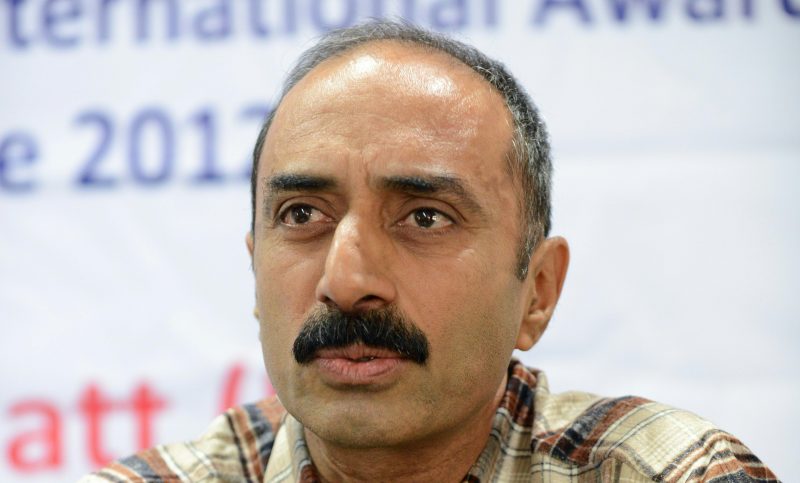Former top policeman who criticised India’s Modi jailed for murder
Sanjiv Bhatt is the most prominent of several police officers to accuse Indian PM Narendra Modi of complicity in the Gujarat riots ()
Ahmedabad (India) (AFP) – A former top Indian policeman who accused Prime Minister Narendra Modi of complicity in deadly communal riots more than a decade ago was jailed for life on Thursday over the death of a man in custody in 1990.
In one of the ugliest episodes in independent India, nearly 1,000 people — the majority of them Muslims — were killed in the 2002 Gujarat riots when Modi was premier of the western state.
The trigger was a fire on a train which killed 59 Hindu activists returning from the holy city of Ayodhya to the state capital, Ahmedabad.
Sanjiv Bhatt said in an affidavit to the Supreme Court in 2011 that he was present at a meeting when Modi ordered police to allow Hindus to “vent out their anger” after the train fire.
But Bhatt, the most prominent of several police officers to make similar claims, later failed to prove his presence at the meeting, with most of his witnesses turning hostile.
Modi was subject to US and British entry bans for years over the riots but has always denied the allegations. He was cleared by a Supreme Court-monitored investigative team.
Bhatt was sacked in 2015 over unauthorised absences from work, and has been in prison since last year over another case, where he is accused of planting drugs on a lawyer and arresting him.
On Thursday, Jamnagar district Judge C.M. Vyas found Bhatt and another officer guilty of torturing and murdering a detainee when Bhatt was the police chief of the district in 1990.
Bhatt was sentenced to life in prison for murder and assault, public prosecutor Tushar Gokani told AFP.
Five other policemen were jailed for two years.
Modi was the chief minister of Gujarat for more than 12 years before he won a landslide national election to become the prime minister of India in 2014. He won a second term last month.
Disclaimer: Validity of the above story is for 7 Days from original date of publishing. Source: AFP.


